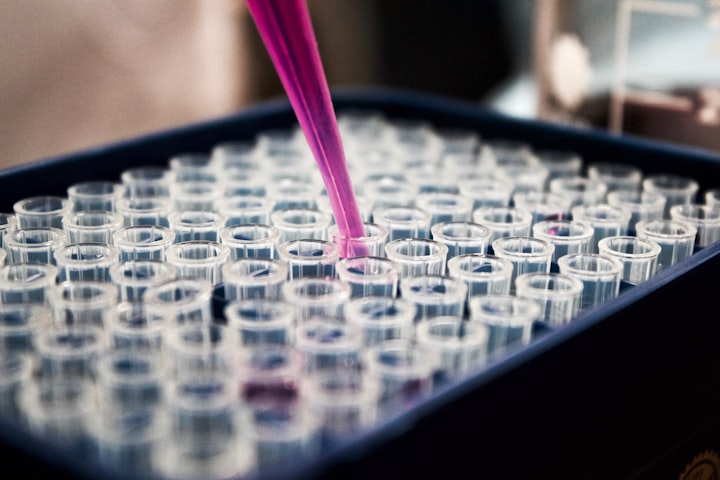5 Must-Know Facts About Colonoscopy
5 Must-Know Facts About colonoscopy

If the doctor finds a polyp, the patient should have a colonoscopy in the future. If your polyps or other abnormal tissue cannot be removed during a colonoscopy, your doctor may recommend that you have a re-examination of a gastroenterologist who specializes in removing large polyps or surgery. If your doctor finds one or two polyps less than 0.4 inches (1 cm) in diameter, he or she may recommend a second colonoscopy in five to ten years, depending on the risk factors for colon cancer. If the colonoscopy detects a benign colon polyp during the test, you may need to examine it more often.
About 30 percent of colonoscopy patients have polyps, which can turn into cancer if left untreated. When doctors find a strong growth called "polyps" during colonoscopy, they can easily remove the polyps, greatly reducing the risk of colon cancer. During a colonoscopy, doctors remove polyps to prevent them from developing cancer. Colonoscopy not only identifies potentially dangerous polyps but also removes them.
If the colonoscopy does not show adenoma or cancer and you do not have risk factors, the next test should be done within ten years. Otherwise, the doctor will not see any problems, such as polyps or cancer, during colonoscopy, and you will need to reschedule the test.
Before your appointment, you will need your colonoscopy doctor's certificate. If you are 50 years of age or older and are at high risk of colon cancer - you have no other risk factors for colon cancer other than age - your doctor may recommend a colonoscopy every 10 years, and sometimes even earlier, to check for cancer. of the colony. . Traditional colonoscopy is a common colon cancer test because it provides a complete diagnosis of the entire colon, but there are other methods. However, colonoscopy is the only test where you can view the entire colon with a colonoscopy and remove the cancer-free polyps.
The American College of Gastroenterology estimates that the risk of cancer decreases by 90 percent after colonoscopy and removal of polyps. Cancer incidence decreased by 30% after the widespread use of diagnostic colonoscopy. Early diagnosis and adequate screening with colonoscopy can prevent 90% of colon cancer.
To find out how to better prepare for your colonoscopy or more information and to make an appointment, visit here. We look forward to meeting your needs and discussing colonoscopy with you, so make an appointment with us today. Not everyone thinks a colonoscopy is right, but an important half hour you can spend to protect your health and reduce the risk of colon cancer. If you are worried about colonoscopy because it is a condition in your family, or if you are 50 and have heard that it is time for colonoscopy, if you look at the facts, you will understand why you should be screened for cancer. . . Colon fat is a life-saving solution.
In fact, according to Murtaza "Kitt" Parish, MD, and Rig Patel, MD, REX Digestive Healthcare, 5-6 percent of people will develop colon cancer during their lifetime. You may have colon cancer rather than have complications from colonoscopy.
Doctors receive specialized training to manage the colon just like any other organ. Colonoscopy is a safe and common way to diagnose colon or colon abnormalities. During this procedure, the doctor inserts a small, flexible tube into the anus, and gently pushes it into the rectum and colon. Your doctor will take a finger-sized tube and insert it slowly into the rectum and colon to check for signs of cancer or malignant lesions.
During a colonoscopy, cancerous growths and cancer can be detected throughout the colon and removed or inserted by biopsy. The advantage of colonoscopy is that tumors can be found or found in the upper part of the colon, where they will be lost through sigmoidoscopy. If the colonoscopy exceeds the colon, polyps or other malignant (non-malignant) tumors may be found.
During a colonoscopy, your doctor will look for polyps, a small group of cells in the lining of your colon. During a colonoscopy, doctors insert a camera into the colon (colon) to check for polyps and tissues that may be cancerous.
Polyps that were removed during colonoscopy were sent to the laboratory for analysis to determine if they had cancer, cancer, or cancer. Specialists can remove potentially cancerous polyps during surgery, which means colonoscopy is also the only cancer screening method that includes primary detection and prevention.
Men with a personal or family history of polyps or skin cancer should consult their doctor about starting a column test early. All people over the age of 50 should have a regular colonoscopy; patients with a family history of colorectal cancer should be screened first.
The risks of not having a colonoscopy far outweigh the often misleading fears associated with the procedure. Although process physical adjustment may be difficult, there is no denying the freedom to know the health of the colony. You and I would not have operated on colonoscopes if they had not been so effective in preventing cancer.
Colonoscopy can not only see, it can even prevent cancer by quickly detecting and removing harmful polyps. Colonoscopy is a very accurate diagnosis of colon and spinal cord cancer and has been proven to diagnose diseases early and save lives. Colonoscopy is one of the few diagnostic procedures that can provide both diagnosis and prevention.
If the doctor finds polyps or abnormal tissue in the colon, colonoscopy is considered normal. If the doctor does not find abnormalities in the colon, colonoscopy is considered negative.





Comments
There are no comments for this story
Be the first to respond and start the conversation.